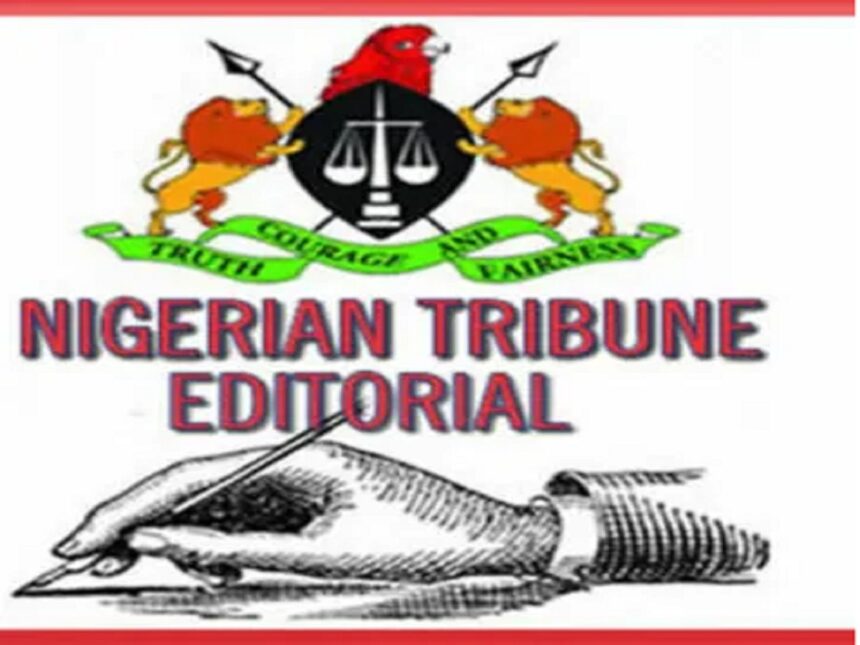THE Plateau State government’s recent demand for the immediate withdrawal of soldiers from flashpoint areas marks a damning indictment of Nigeria’s security apparatus. This call came following the brutal killing of 27 farmers in Riyom Local Government Area (LGA) on July 16, an attack that unfolded just 200 meters from a military checkpoint yet saw no meaningful intervention from security forces. Governor Caleb Mutfwang’s condemnation of the military’s negligence, despite prior intelligence, reflects a deepening crisis of confidence in federal security structures. His administration’s push for the replacement of soldiers with Mobile Police (MOPOL) units underscores a desperate need for a strategic overhaul in how Nigeria addresses asymmetric warfare and communal violence.
The attack in Bindi-Jebbu, Tahoss community, was not an isolated incident. It was the latest in a relentless wave of violence that has claimed hundreds of lives in Plateau State this year alone, predominantly in farming communities allegedly targeted by armed herders. What makes this massacre particularly egregious is its avoidability. The Plateau government revealed that security agencies had early warnings of an imminent attack but failed to act. Commissioner for Information, Joyce Ramnap, lamented that soldiers stationed nearby neither prevented the killings nor pursued the assailants, raising troubling questions about complicity or incompetence. Governor Mutfwang’s visit to the grieving communities amplified these frustrations. His demand for a special military inquiry into the “actions and inactions” of personnel stationed in the area reflects a broader pattern of impunity. If soldiers cannot protect civilians within spitting distance of their checkpoints, what purpose do they serve? The state’s proposal to replace them with MOPOL units is rooted in the belief that the police are better trained for internal security operations, particularly in asymmetric conflict zones.
Nigeria’s reliance on the military for internal security has long been a subject of debate. While soldiers were initially deployed to Plateau State under Operation Safe Haven (OPSH) following the failure of police to quell violence, their presence has yielded diminishing returns. The state government argues that the military’s conventional warfare tactics are ill-suited to addressing communal clashes and guerrilla-style attacks. Worse still, there are allegations of collusion; some soldiers have been accused of turning a blind eye to attacks or even facilitating violence. This is not mere speculation. The recent redeployment of Sector 6 Commander Colonel Thomas Paave after the Riyom attack suggests internal acknowledgment of lapses. Yet, reshuffling officers without systemic reforms is a band-aid solution. The Plateau government’s call for accountability, including investigations into command responsibility, is a necessary step toward dismantling a culture of negligence.
Plateau’s push for MOPOL deployment is not without merit. Mobile Police units are specifically trained for riot control and counter-insurgency operations, making them better equipped to handle the fluid nature of communal violence. In addition, the state is advocating for federal support for Operation Rainbow, a state-backed paramilitary initiative modeled after the Civilian Joint Task Force (CJTF) in the North-East. Critics, however, argue that withdrawing soldiers could create a security vacuum. Muslim groups in Plateau, including the Jama’atu Nasril Islam (JNI), have opposed the move, insisting that the military’s presence has been critical to maintaining fragile peace in some areas. Yet, this argument ignores the glaring failures: if soldiers cannot prevent attacks despite checkpoints and intelligence, their symbolic presence is meaningless. Plateau’s crisis is a microcosm of Nigeria’s broader security collapse. The Federal Government’s inability to protect civilians, whether in Plateau, Benue, or Zamfara, has eroded trust in the social contract. When a governor openly declares that his people are safer without federal troops, it is a scathing indictment of national leadership.
The call for UN intervention by Plateau elders in past years was dismissed as alarmist, but today, it seems prophetic. If Nigeria cannot safeguard its citizens, the international community may have no choice but to step in. President Bola Tinubu’s silence on Plateau and his failure to enforce directives on similar killings in Benue signal a dangerous indifference. Plateau State’s call for military withdrawal is not merely a policy disagreement; it is a desperate plea for survival. The federal government must launch a thorough investigation and remove compromised security personnel to restore accountability, a non-negotiable foundation for public trust. Nigeria’s security strategy needs a complete overhaul. A hybrid policing modelintegrating Mobile Police (MOPOL), community vigilante groups, and tech-driven surveillance must replace the outdated approach. Subnational initiatives like Operation Rainbow should be empowered with proper funding and legal authority to operate effectively.
If soldiers cannot protect civilians, they have no business occupying conflict zones. The era of excuses is over. The government must decide: reform its broken security architecture or continue presiding over the slaughter of its citizens.
READ ALSO: Gunmen kill 27, destroy farms, burn several houses in Plateau community
WATCH TOP VIDEOS FROM NIGERIAN TRIBUNE TV
- Relationship Hangout: Public vs Private Proposals – Which Truly Wins in Love?
- “No” Is a Complete Sentence: Why You Should Stop Feeling Guilty
- Relationship Hangout: Friendship Talk 2025 – How to Be a Good Friend & Big Questions on Friendship
- Police Overpower Armed Robbers in Ibadan After Fierce Struggle






